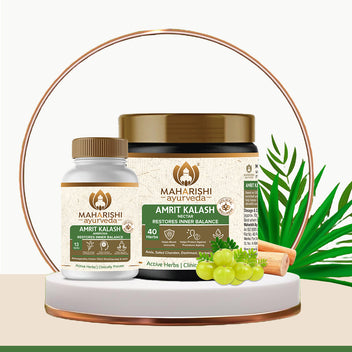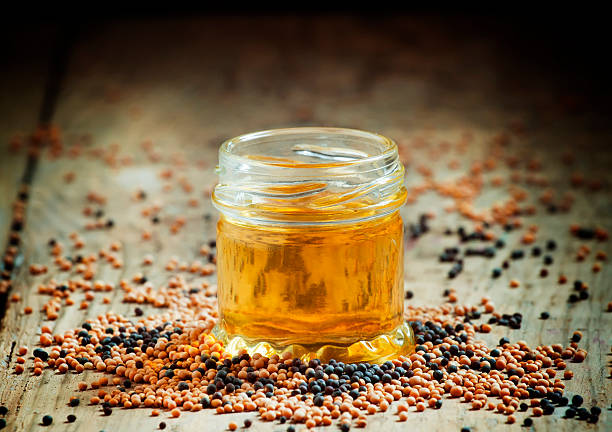Organic Amla (Indian Gooseberry): The Ayurvedic Superfruit for Everyday Health

“What if one tiny, tangy fruit could supercharge your immunity, slow down aging, and bring balance to your entire body? Meet Amla Ayurveda’s timeless superfood, packed with Vitamin C and revered for centuries as a Rasayana (rejuvenator) for health, vitality, and longevity.”
What is Amla? Understanding Its Origins and Importance
Amla, also known as Indian Gooseberry, is a small, round fruit with a special place in Ayurveda and Indian culture. Its scientific name, Emblica officinalis, reflects its importance in traditional healing practices. Revered for centuries, Amla is valued for its tangy flavor and remarkable health benefits. In Ayurveda, it is described as a Rasayana, a rejuvenating herb that promotes longevity and vitality.
Consumed raw, dried, powdered, or as juice, Amla is versatile and easy to include in daily routines. References in ancient texts highlight its role in remedies and tonics, while its harvest during autumn symbolizes renewal and nourishment. By understanding its origins and Ayurvedic significance, one can truly appreciate how this small fruit supports health, balance, and overall well-being.
Botanical Classification:
- Latin Name: Emblica Officinalis
- Family: Euphorbiaceae
- Part Used: Fruit
- Other Names: Dhatri (Mother)
- Habitat: Found in the Himalayas, sea coasts, Kashmir, and the Deccan region.
Organic Amla: Unique Properties
- Taste: Amla has five out of the six tastes, primarily sour, with all tastes except for salt.
- Nature: It is sheet (cool ) in nature and has a sweet - vipaka (post-digestive effect).
- Tridosha Balancing: Amla helps pacify the three doshas (Vata, Pitta, and Kapha). Its sour taste balances Vata, the sweet taste balances Pitta, and its dry (rooksha) and astringent qualities help balance Kapha.
Nutritional Value of Organic Amla: A Powerhouse of Nutrients

Richest Natural Source of Vitamin C
- Contains 600–700 mg per 100 g, nearly 20 times more than oranges.
-
Supports immunity and combats oxidative stress.
Essential Minerals
- Calcium → strengthens bones.
- Iron → aids blood production.
- Phosphorus → supports metabolism and energy balance.
Bioactive Compounds
- Gallic acid & Ellagic acid → anti-inflammatory and potential anti-cancer properties.
Overall Health Benefits
- Boosts vitality, supports long-term wellness, and enhances resilience against disease.
Amla in Ayurveda: A Traditional Perspective
Amla holds a revered position in Ayurvedic medicine, often regarded as a cornerstone of holistic health. Its classification as a Rasayana signifies its rejuvenating properties, which are believed to enhance vitality and promote longevity. In Ayurvedic texts, Amla is described as having a cooling energy (sheet virya) and a sour taste (amla rasa), making it suitable for balancing all three doshas.
Historically, Amla has been used in various formulations, including the well-known Chyawanprash, which combines Amla with other herbs to create a powerful tonic for overall health. This traditional preparation is cherished for its ability to boost immunity and improve vitality, particularly during seasonal changes.
Amla is also celebrated for its role in daily Ayurvedic rituals, such as dinacharya (daily routine) and ritucharya (seasonal regimen), emphasizing its importance in maintaining balance and harmony within the body. By understanding Amla's traditional uses and properties, one can appreciate its significance in Ayurvedic practices and its potential to support modern wellness journeys.
Benefits of Amla

-
Balances Pitta Disorders
Amla’s natural cooling property helps pacify aggravated Pitta dosha. It is especially beneficial in conditions like Raktapitta (bleeding disorders), where excess heat and acidity disturb blood health.
-
Supports Urinary Health
Its cooling and anti-inflammatory action helps relieve burning urination and discomfort in urinary tract infections or cystitis, promoting urinary comfort.
-
Improves Anemia
Being extremely rich in Vitamin C, Amla enhances iron absorption and helps increase blood count, making it supportive in managing anemia. -
Promotes Liver Health
Amla strengthens liver function, aiding detoxification and regeneration. It is considered beneficial in colitis, hepatitis, and other liver-related imbalances. -
Helps Manage Diabetes
A traditional combination of Amla with turmeric (Haldi) powder helps regulate high blood sugar levels, supporting healthy glucose metabolism. -
Effective for Digestive Issues
By pacifying Pitta, Amla reduces acidity, gastritis, and inflammation of the gut. It is also beneficial in ulcers and colitis, providing relief from burning sensations and indigestion. -
Nourishes Hair Health
Amla strengthens hair roots, prevents premature graying and hair fall, especially when linked to excess heat or anemia. External use (Amla decoction or paste) and internal intake (powder or tablets) both support stronger, healthier hair. -
Supports Reproductive Health
Amla powder with mishri is traditionally used to manage spermatorrhea in men and leucorrhea in women, conditions often caused by excess body heat. Its cooling effect restores balance. -
Relieves Constipation
With its mild laxative effect, Amla helps regulate bowel movements and relieves constipation naturally, without causing dependence. -
Improves Eye Health (Chakshushya)
Revered as a tonic for the eyes, Amla improves vision, strengthens eye muscles, and reduces inflammation. Washing eyes with Amla decoction is a traditional remedy for soothing burning and redness.
Amla and Dosha Balancing: Harmonizing Your Body with Nature
In Ayurveda, balance is key to maintaining health and well-being. Amla plays a vital role in harmonizing the three doshas: Vata, Pitta, and Kapha. Each dosha represents different energies within the body, and Amla's unique properties help balance them effectively.
Amla for Vata
With its grounding qualities, Amla provides nourishment and hydration, combating the dryness associated with Vata imbalances. It helps soothe anxiety and restlessness, promoting a sense of calm.
Amla for Pitta
Amla’s cooling nature is particularly beneficial for those with a Pitta constitution. It helps reduce inflammation and acidity, making it an excellent choice for soothing digestive issues and skin irritations.
Amla for Kapha
Amla's astringent properties can assist in breaking down mucus and promoting healthy metabolism, which is essential for balancing Kapha's heavier qualities.
How to Use Amla: Practical Tips and Preparation Methods
1.Raw Consumption
Enjoy Amla fresh by slicing it and sprinkling it with a pinch of salt or sugar to enhance its tangy flavor. This is a great way to start your day!
2.Amla Juice
Mix 30 ml of Amla juice with warm water or honey for a refreshing drink that can boost your immune system and energize you.
3.Amla Powder
Add Amla powder to your smoothies, yogurt, or oatmeal. It blends seamlessly into various dishes, enhancing both flavor and nutritional value.
4.Amla Candy
For a sweet treat, try Amla candy, which is made by preserving the fruit in sugar. It’s a delicious way to enjoy the benefits of Amla on the go.
5.Hair Masks
Create a nourishing hair mask by mixing Amla powder with coconut oil or yogurt. Apply it to your scalp and hair, leave it on for 30 minutes, and then rinse for shiny, healthy hair.
Maharishi Ayurveda products that incorporate amla (Indian gooseberry)
1. Amalaki Capsules – For Immunity and Detoxification
These capsules are enriched with polyphenols and vitamin C. They help manage all three doshas (Vata, Pitta, and Kapha), prevent toxin accumulation, strengthen the immune system, support healthy digestion, and enhance longevity.
2. Amrit Kalash Dual Pack – Immunity Booster for Perfect Health
This combination includes:
-
Amrit Kalash Nectar Paste: A blend of 40 herbs like amla, Haritaki, and Dashmool, supporting immunity, energy, and heart health.
-
Ambrosia Tablets: Fortified with 13 herbs, including Ashwagandha and Shankhpushpi, focusing on mental clarity, stress response, and cellular rejuvenation.
3. Amlant – Natural Acid Balancer
Amlant is designed to restore acid balance naturally, strengthen the digestive system, and prevent ulcer formation. It contains herbs like Shunthi, Pippali, Haritaki, and Vibhakti.
4. Amalaki Churna – Pure Amla Powder
Amalaki Churna is made from 100% pure Amla (Indian gooseberry) and is designed to rejuvenate the body, boost immunity, and support overall health. It is rich in Vitamin C and antioxidants, helping to strengthen digestion, enhance skin health, support heart and eye health, and promote vitality.
Amla: Potential Side Effects and Precautions
While Amla is widely celebrated for its health benefits, it's important to consume it mindfully. Here are some precautions and potential side effects to consider:
-
Digestive Sensitivity
Some individuals may experience digestive discomfort, such as diarrhea, if Amla is consumed in excessive amounts. It’s advisable to start with small doses and observe your body’s response.
Also Read How to Improve Digestion Naturally at Home—> -
Acidity Concerns
Those with a tendency toward acidity or heartburn should be cautious when consuming Amla, particularly in its raw form. It may be best to enjoy it in moderation or consult a healthcare professional.
-
Pregnancy Considerations
Amla is generally considered safe during pregnancy, but it’s always wise to consult with a healthcare provider before adding new supplements to your routine.
-
Allergic Reactions
While rare, some individuals may have allergic reactions to Amla. If you experience any unusual symptoms, discontinue use and seek medical advice.
-
Recommended Dosage
The typical dosage for Amla powder is between 3 to 6 grams daily, while Amla extract can be taken in doses of 10 to 20 ml. Always adhere to recommended guidelines.
Conclusion
Incorporating Amla into your daily routine can boost overall wellness. Rich in nutrients and antioxidants, this superfood supports immunity, digestion, skin, hair, and heart health. Consumed raw, as juice, or in powdered form, Amla is versatile and deeply rooted in Ayurvedic wisdom. Celebrated as a Rasayana, it balances all three doshas, enhances ojas (vital energy), and builds resilience. Make Amla a staple in your diet to restore balance and vitality naturally.
Experience the power of Organic Amla today. Support your immunity, digestion, and overall vitality with Maharishi Ayurveda Amalaki Capsules. Add this Ayurvedic superfood to your daily routine and feel the difference naturally.
FAQ's
1. How much Vitamin C does one Amla contain?
Approximately 250 to 300 mg, which is 20 times more than an orange per gram.
2. Is Amla good for hair growth?
Yes, Amla is known to strengthen hair follicles and promote growth, making it a popular choice for enhancing hair health.
3. Can we eat Amla at night?
No, it is best consumed in the morning on an empty stomach.
4. Is Amla safe during pregnancy?
Yes, but it should be consumed under medical supervision.
5. Who should avoid Amla?
Generally safe for everyone, but those with a tendency for itching or loose stools should avoid it.
6. Is Amla good for liver health?
Yes, it supports liver health. Effective in treating conditions like Hepatitis.
Popular Posts

Choosing the Right Detox Based on Your Ayurvedic Body Type
30 Jan, 2026The fundamental truth of the human condition is that no two bodies function the same way. Based o...
Read more
Ayurvedic Detox Diet Tips and Recipes You Can Easily Make at Home
29 Jan, 2026In Ayurveda, detoxification is the process of digesting or eliminating accumulated toxins or ama ...
Read more
Foods That Support Detox According to Ayurveda
28 Jan, 2026In Ayurveda, food is the primary source of prana, the vital life energy that sustains the body, m...
Read more






 Popular Read
Popular Read

















































